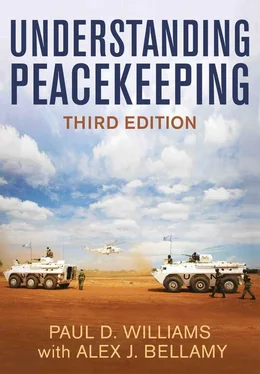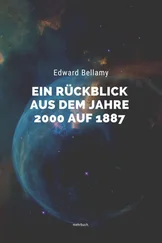PART I CONCEPTS AND ISSUES
1 Peace Operations in Global Politics
This chapter analyses the relationships between peace operations and global politics. Initially, peacekeeping was concerned mainly with creating the conditions for states to settle their disputes peacefully. Over time, as interstate war diminished and the frequency of civil wars within states increased, peace operations were used more frequently to maintain peace within states and sometimes to influence domestic structures in order to turn war-torn territories into peaceful democratic societies. Whereas the Westphalian order rested on a notion of sovereignty that granted states protection from interference by outsiders, the post-Westphalian account conceived of sovereignty as entailing responsibilities, especially for the protection of their populations from atrocity crimes such as genocide and crimes against humanity. As the number and scope of peace operations informed by the post-Westphalian approach has grown, so too has the number of theories and conceptual frameworks used to understand them.
To address these issues, this chapter starts by summarizing the basic principles of the Westphalian and post-Westphalian conceptions of international order and the respective role of peace operations within them. The second section then presents different ways of theorizing peace operations and five prominent theoretical approaches that offer insights into the roles that peace operations play in global politics. Finally, we note the conclusions of existing scholarship about the overall impacts peace operations have had on trends in armed conflict.
1.1 Westphalian and post-Westphalian order
Peace operations were initially conceived as a tool for maintaining order between states. As discussed in this book’s Introduction, we label this context the ‘Westphalian’ international order even though it coexisted with continuing forms of empire and colonial rule. Within this context, the principal role of peace operations was the facilitation of decolonization and the peaceful settlement of disputes between states. In contrast, advocates of what we call a ‘post-Westphalian’ order suggested peace operations should sometimes also play a role in shaping the domestic governance structures of states to ensure the government fulfilled its responsibilities to its civilian population. This post-Westphalian view rose to ascendancy at the United Nations during the 1990s, although it remained highly controversial for some UN member states which preferred a more limited vision of what peace operations should be for. To some extent, the twenty-first century has seen a merging of these two visions as more peace operations were tasked with ‘stabilization’ activities, helping the host state impose its authority across its territory. These missions, such as those in Haiti, Democratic Republic of Congo, Central African Republic, Mali and, initially, South Sudan, have been quite intrusive in terms of their involvement in domestic affairs (and are thus ‘post-Westphalian’). But their principal aim is to support the state in fulfilling its basic functions (and are thus to some degree classically ‘Westphalian’).
The Westphalian order takes its name from the settlements concluded at the end of Europe’s Thirty Years’ War (1618–48), which took place between the ‘Union’ of Protestant German princes and free cities and the ‘League’ of their Catholic counterparts (Jackson 2000: 162–7). Politically, the treaties recognized the territorial sovereignty of the approximately 300 states and statelets within Europe. They also symbolized the sovereign state’s success in prevailing over other forms of political organization (Tilly 1992). In doing so, the state forcibly acquired five key monopoly powers:
1 the right to monopolize control of the instruments of violence;
2 the sole right to collect taxes;
3 the prerogative of ordering the political allegiances of citizens and of enlisting their support in war;
4 the right to adjudicate in disputes between citizens; and
5 the exclusive right of representation in international society (Linklater 1998: 28).
The treaties also reaffirmed the Peace of Augsburg (1555) at which the principle of cujus regio ejus religio was formulated, whereby each ruler declared which brand of Christianity (Protestantism or Catholicism) would hold exclusive rights within their territories and other rulers agreed to respect the sovereign’s right to determine the country’s religion (Jackson 2000: 163).
The state’s success in Europe brought with it the development of three fundamental norms (Jackson 2000: 166–7). The first norm held that the monarch was emperor in their own realm. Thus, sovereigns were not subject to any higher political authority. The second was that outsiders had no right to intervene in a foreign jurisdiction on the grounds of religion, while the third affirmed the European balance of power as a means of preventing one state from making a successful bid for hegemony that would, in effect, re-establish empire on the continent. These three norms created an international order that permitted different cultures and nations to live according to their own preferences while respecting the rights of others to do likewise and avoiding the danger of assimilation.
These norms evolved incrementally and took nearly three hundred years to develop fully. Nor was this system anywhere near universal. Despite the rise of sovereign states, until 1918 most of Europe was actually governed by empires (Russian, Austrian and Ottoman), and these norms applied only to European – and a small handful of non-European – states. A quite different set of rules applied in the colonized world. Finally, the norms and practices that characterized European diplomacy in this Westphalian order were Christian and Latin (Stern 1999: 65–9).
After the Second World War the Westphalian order gradually expanded to cover the entire globe, as former colonies sought to take their place as sovereign states (Bull and Watson 1984; Jackson 2001). Between 1947 and 1967, membership of the United Nations expanded from about fifty to over 160 (Jackson 2001: 46). By 2011, the UN had 193 members and roughly fifty additional political entities making claims to statehood. In some places the transition to sovereign statehood was relatively peaceful, but in others – such as Indochina, South Asia and Algeria – it was a bloody affair. If a global Westphalian order was to survive and achieve a degree of stability, it had to protect a sovereign’s right to rule and prevent strong states simply overpowering weak states. With decolonization and the expansion of the Westphalian order, therefore, came calls to protect the sanctity of state sovereignty through law.
Arguably the cornerstone of the Westphalian order was Article 2(4) of the UN Charter, which prohibited the threat and use of force in international relations. Alongside it, Article 2(7) insisted that the new global organization would not interfere in the domestic affairs of its members. In the subsequent years, these messages from the newly decolonized world came loud and clear and used the UN General Assembly to issue several declarations on the importance of self-determination and non-interference.
Many academics supported the idea that national communities were so different, and that diversity was a good worth preserving, that international order can be achieved only by rigid adherence to such Westphalian principles (Jackson 2000: 291). It was thought to be a short road from relaxing these Westphalian principles to relegitimating colonialism. Even today, international commitment to non-interference remains widespread and steadfast.
Читать дальше












